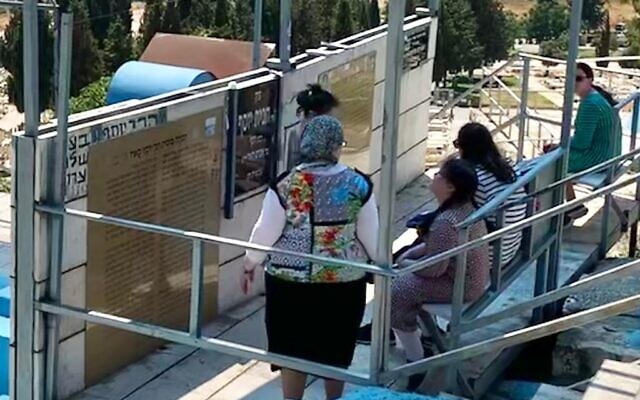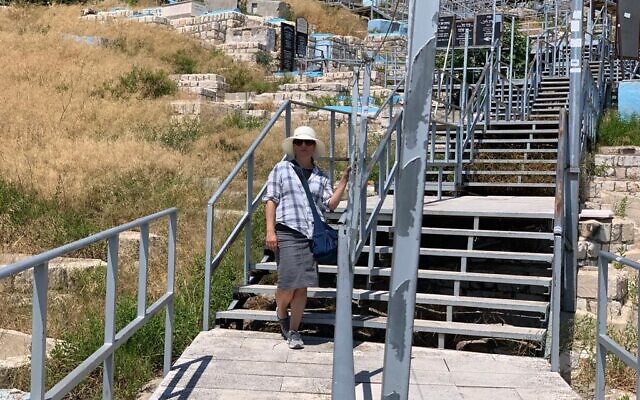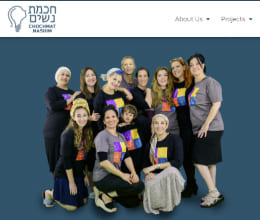I have lived in the epicenter of Jewish religious extremism for 15 years and I’ve been writing about what I witness there since 2013. And while we have won some battles against extremists, we are losing the war.
When I started writing, I was told that it was “just a few crazies”, that it wouldn’t expand beyond the small neighbourhood in which they live (which abuts mine), and that if we left them alone, they’d leave us alone.
Ten years later I can tell you, to my great despair, that each of these statements has been proven wrong.
In the past weeks alone, violence against soldiers, women and children has escalated to a point that if we do not act, it is likely that someone will be gravely injured or worse.
Soldiers are taunted, called “Nazis” and even chased by mobs, forced to find shelter with strangers. Girls and women are harassed to sit at the back of the bus; when I wrote about this in 2013 when my own daughters were told to go to the back of the bus, I was told I was making a big deal about nothing.
Girls, religious girls, are targeted by grown men for not being “tznius” (modest). Boys are threatened by men for having smartphones. And the reports keep coming in.
Some claim this is a religious war. But we’ve seen that this is a turf war. And we who care about true religious freedom and justice are rapidly losing ground to the extremists by not stopping them in their tracks.
Enforcing gender segregation has been the number one tactic of the extremists. By portraying their actions as “religious freedom,” they call for “cultural sensitivity” and ask that their way of life be respected. An ironic request, as they expect the respect to go only one way: in their own direction.
The current demand by the religious parties to change Israeli law to allow forced gender segregation in the public sphere at publicly funded events is similarly not a benign request for respect. Without changing a thing, crowds can already sit separately if they want to. Segregation is allowed, it just can’t be forced. A significant difference.
Why does it matter? Because in every case when women have been forcibly segregated, they are given the inferior position.
On buses where segregation is enforced (illegally), women are restricted to the rear seats. Whether they have strollers, children, nausea or simply don’t want to sit there, is irrelevant. At segregated concerts women are often given the back or seats in the bleachers (fixed tiered benches) – and still charged the same amount.
In separate university courses and tracks female professors lose out on jobs because the men can teach both male and female students, while women are only allowed to teach women.
At the Western Wall, women have one-fifth of the space. Men have a far larger plaza, as well as spacious interior rooms and no, there are not higher numbers of male visitors to justify this inequity.

In the ancient cemetery of Tzfat, a newly implemented segregated staircase leads men directly to the graves of holy tzadikim where they can lay prostrate on the monument while women are led to a wall behind the grave, cut off completely.

When segregation is allowed in places that are not religious, such as medical conferences, ceremonies, and hospitals, female professionals have been put behind a curtain and not allowed to speak.
Lack of female representation leads directly to harm. A real life example with dire consequences can be seen in Israel where both Charedi political parties forbid women on their lists. With an average of 16 seats, that means that well over 10% of the Knesset is automatically ultra-Orthodox male.
And while men of course can represent the needs of women, here, they simply don’t. They do not attend the committees on domestic violence or women’s health, leaving their women woefully underrepresented, underfunded, and in danger.
As these topics are also not discussed in Charedi media or most schools, Charedi women are at a serious disadvantage when it comes to knowing about risks to their health and where to get help. Screenings for breast cancer in 2018 were 30% lower for Haredi women leading to women dying of diseases they didn’t know they had. Only internal campaigns run by women activists (myself included) began to change this reality.
Enforcing segregation is dangerous. It is almost never done fairly and it never stops at separate seating. Taking the norms of the Orthodox synagogue, understood as meant to keep houses of worship free of distraction during prayer, and enforcing them outside of the synagogue walls is destructive.
I am a religious woman, and I live in the State of Israel. My city has deteriorated in the hands of extremists and I know too well the damage that happens when women are not included in the decision-making process. How terrifying to see the first extremist steps of forced segregation taking place on a national level.
First published on The Jewish News


